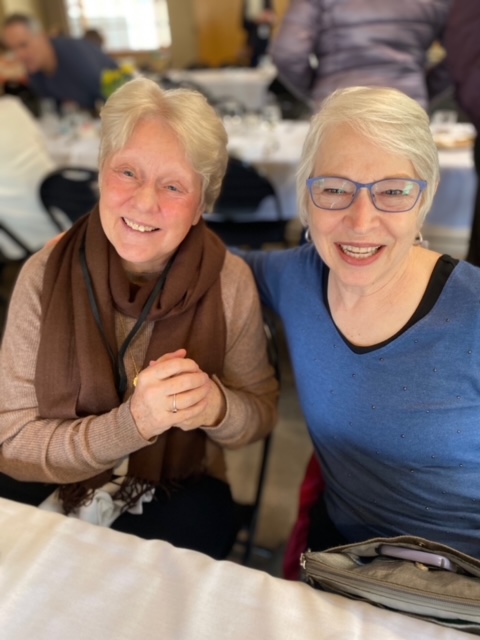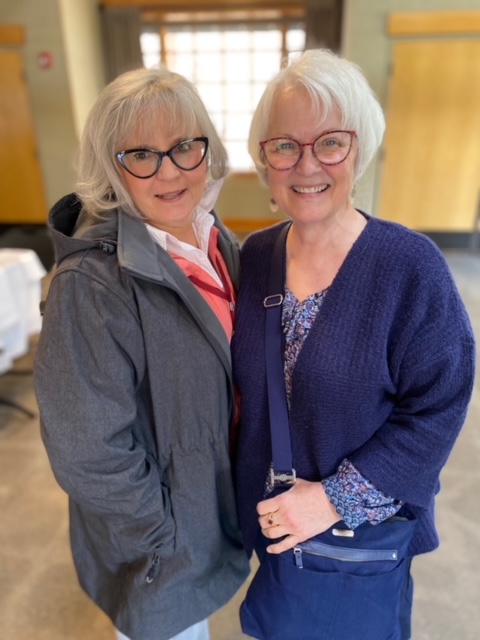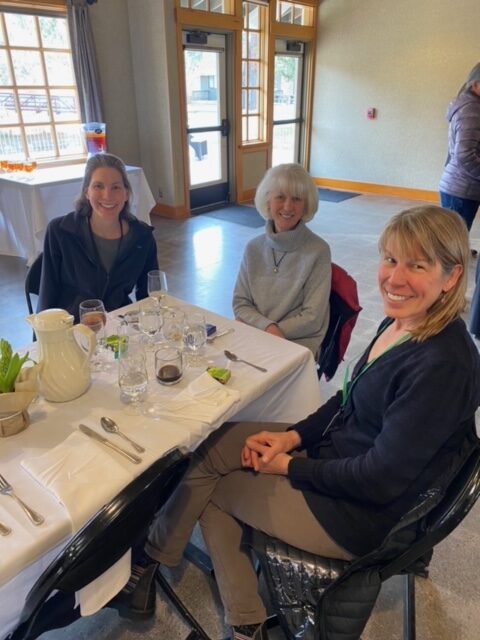Hospice volunteers embody the spirit of kindness and compassion, dedicating their time to bring light and comfort to those nearing the end of their life’s journey. These selfless individuals offer a gift of presence, ensuring that no one must face their final days alone. By volunteering at Partners In Care, they contribute immeasurably to the lives of patients and their families, offering emotional support, companionship, and practical help that transcends the limitations of medical treatment. Their role at Partners In Care is a profound testament to the power of human connection and the positive impact one person can make in the lives of others during their most vulnerable moments.
What is a Hospice Volunteer?
A hospice volunteer is a compassionate individual who donates their time to assist patients in end-of-life care, providing emotional support, companionship, and practical help to both patients and their families. These volunteers are integral to the hospice care team, working alongside medical professionals, social workers, and spiritual care providers to offer a holistic approach to palliative care.
At Partners In Care, a hospice volunteer’s duties are diverse and tailored to meet the needs of the hospice program and its patients. One of the primary roles is offering companionship to patients. This may involve sitting with patients to talk, read, listen to music, or simply be present. This human connection can significantly alleviate the loneliness and isolation felt by those in the final stages of life.
In addition to direct patient interaction, hospice volunteers provide respite for family members, giving them much-needed breaks. They may sit with patients while family caregivers run errands, rest, or spend time with other loved ones. This support is invaluable to families who are often overwhelmed and exhausted from the demands of caregiving.
Hospice volunteers may also assist with administrative duties at Hospice House in Bend, including greeting guests, playing music, bringing their HosPet therapy dogs, assisting in events and other duties. These tasks help to keep the hospice organization running smoothly and ensure that resources are available for patient care.
Some volunteers bring specialized skills to their role, such as massage therapy, pet therapy, or artistic skills like music and crafts. These activities provide patients with therapeutic and enjoyable experiences that can brighten their days and improve their quality of life.
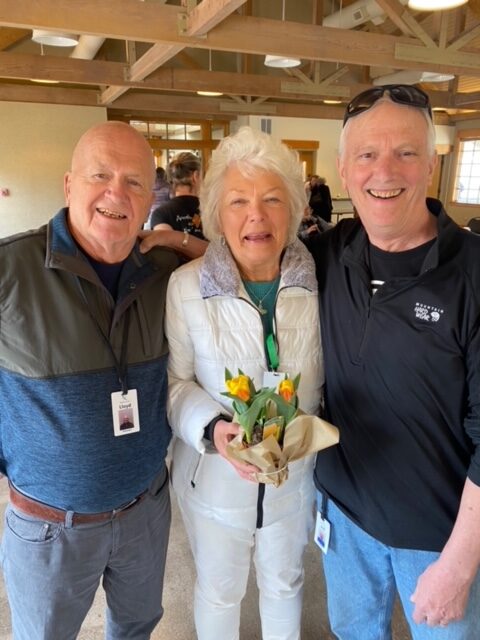
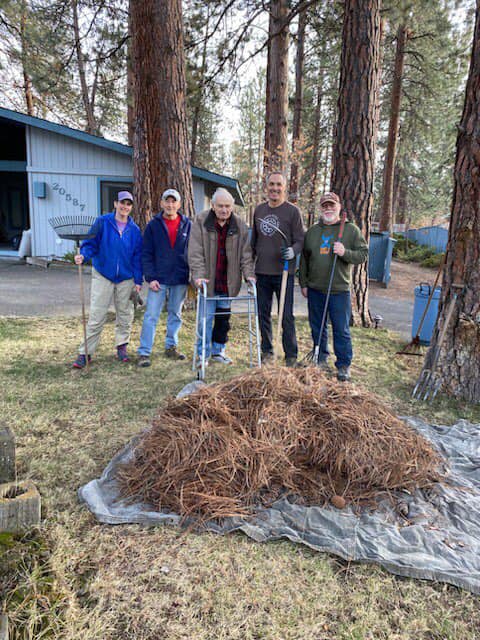
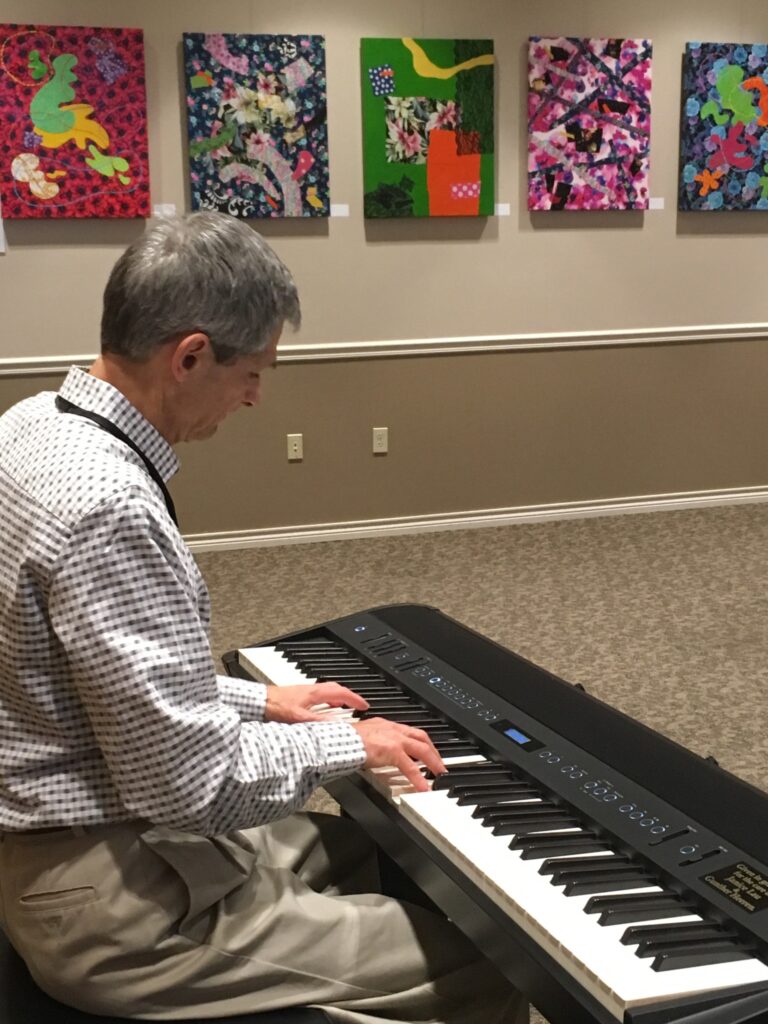
Most importantly, volunteers are trained to be sensitive to the emotional needs and wishes of each hospice patient and their family. This training includes understanding the emotional and physical aspects of a life-limiting illness, which prepares them to handle various situations compassionately and respectfully.
The impact of hospice volunteers at Partners In Care extends beyond the practical assistance they provide. They offer a form of compassionate care that nurtures the spirit and affirms the dignity of the individuals they serve. In doing so, hospice volunteers exemplify the profound human capacity for kindness and altruism, making them indispensable to the hospice care philosophy.
Responsibilities of a Hospice Volunteer
Here’s a list of the general responsibilities of a hospice volunteer at Partners In Care:
- Providing Companionship: Offering emotional support, companionship, and a comforting presence to patients, helping to alleviate feelings of isolation and loneliness.
- Respite and Family Support: Giving family members short breaks from caregiving tasks by staying with patients, allowing caregivers time to rest, attend to personal matters, or recharge.
- Emotional Support: Listening to patients’ concerns and sharing in their life reflections, which can be therapeutic for patients dealing with end-of-life issues.
- Assisting with Practical Tasks: Run errands for the patient and their primary family caregivers, deliver supplies and prescriptions on behalf of staff.
- Special Skills and Interests: Sharing special skills such as music, art, reading, or even pet therapy to enhance the quality of life for patients.
- Event Participation: Assisting with pinning ceremonies and other activities organized for military veterans in hospice.
- Hospice House Assistance: Supporting staff by greeting guests, providing music and other duties as needed.
These responsibilities highlight the varied and vital roles hospice volunteers at Partners In Care play in enhancing the quality of life for terminally ill patients and providing support to their families.
Requirements for Becoming a Hospice Volunteer
Becoming a hospice volunteer is a deeply rewarding opportunity that comes with specific requirements designed to ensure the well-being and comfort of both the patients and the volunteers themselves. The primary qualification is a compassionate disposition and a genuine desire to help others during a challenging period of their lives.
At Partners In Care, volunteers undergo a comprehensive training program that starts with a meeting with our volunteer coordinator and moves into six hours of video learning and one day of in-person training. Our hospice team will educate potential volunteers about the basic principles of hospice care, the physical and emotional aspects of dying, as well as the psychological needs of patients and their families. We cover topics such as communication skills, understanding grief and bereavement, patient privacy, and the importance of maintaining boundaries. This preparation ensures that volunteers are well-equipped to handle the sensitive nature of their role.
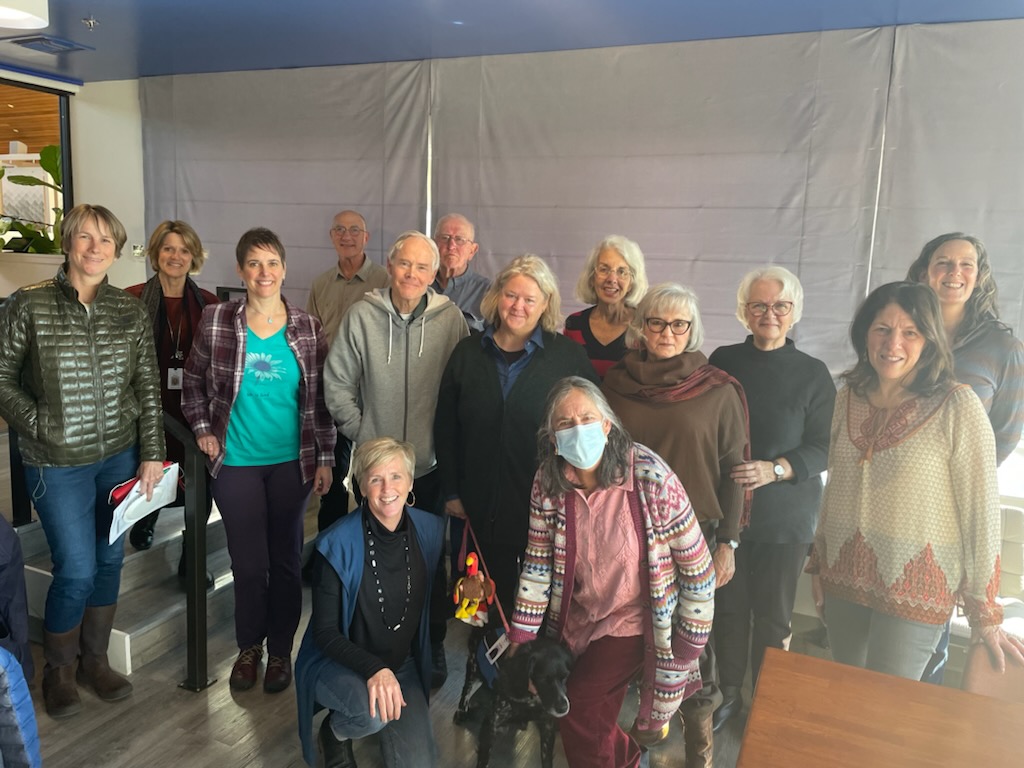
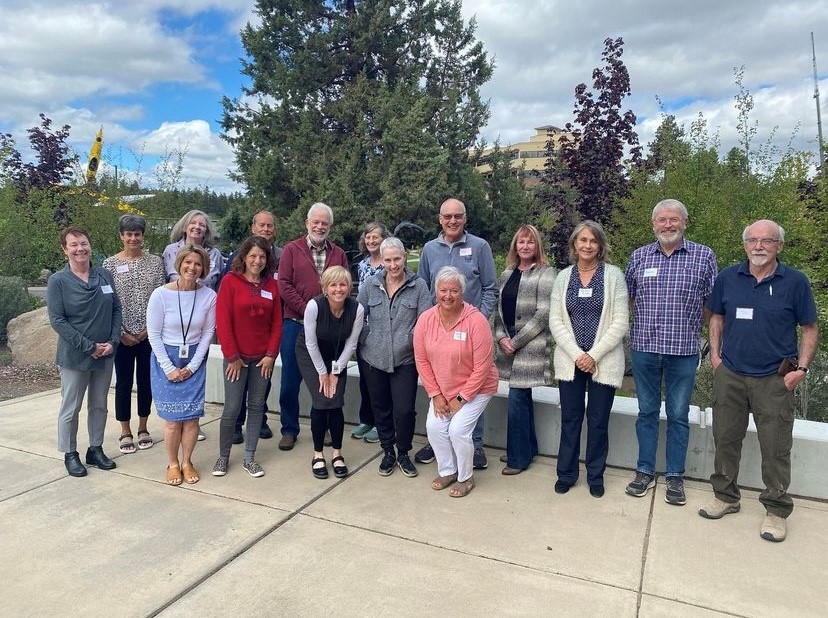
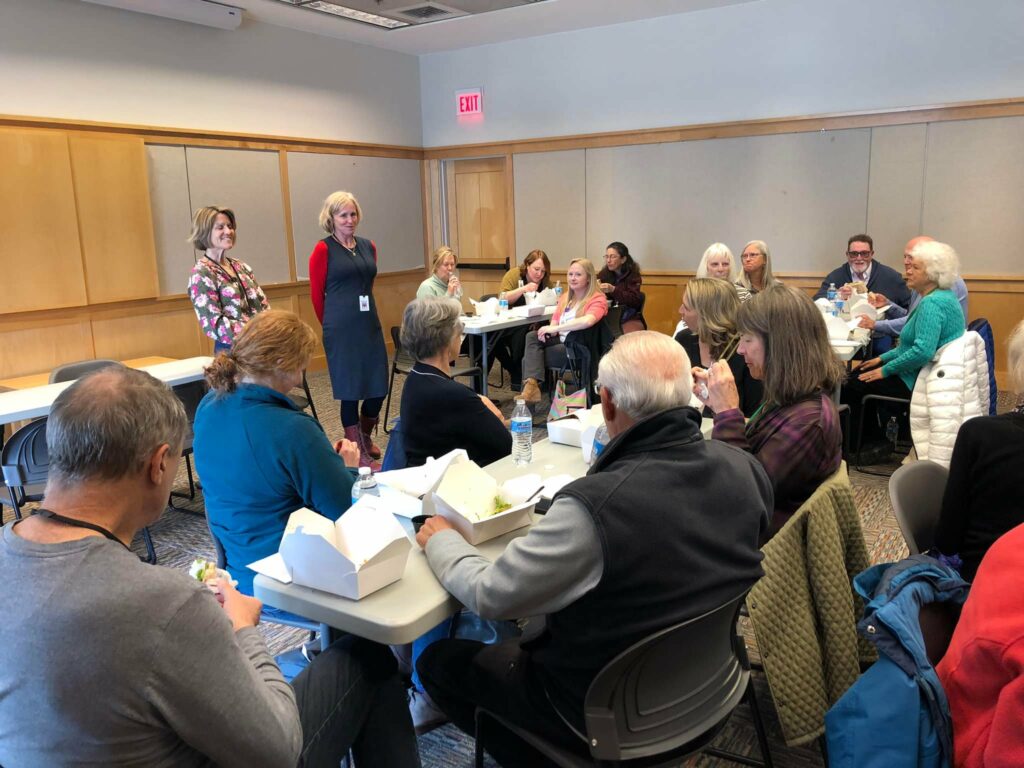
In addition to training, hospice volunteers must pass a criminal background check, drug screening and be tested for tuberculosis (TB) to ensure the safety and security of the patients and the integrity of the hospice program.
Personal attributes that are highly valued in hospice volunteers include patience, empathy, reliability, and respect for diverse cultures and beliefs. Since volunteers often work with families during emotionally intense periods, emotional maturity and the ability to listen without judgment are crucial.
Finally, a commitment to confidentiality and adherence to all hospice policies and procedures is mandatory. These requirements ensure that hospice volunteers are prepared to provide the best support and care to patients and their families during their most vulnerable times.
Time Commitment of a Hospice Volunteer
The time commitment for hospice volunteers can vary depending on the specific needs of the hospice volunteer program and the availability of the volunteer. Generally, we ask volunteers to commit to time they can, with some providing care one hour a week and others volunteering time hours per week doing a variety of volunteer responsibilities.
The time commitment is important to help build trust and stability in the relationships that volunteers develop with patients and their families during a critical period in their lives.
Benefits of Becoming a Hospice Volunteer
Becoming a hospice volunteer with Partners In Care offers profound personal benefits, enriching one’s life through the experience of giving back in a deeply meaningful way. Volunteers often describe a heightened sense of purpose and fulfillment, as they provide comfort and companionship to individuals during their final stages of life. This role allows volunteers to make a significant impact in their communities by supporting not only the patients but also their families, easing the emotional burden associated with end-of-life care.
Volunteer service in hospice offers several significant benefits, including:
- Emotional Fulfillment: Experiencing the satisfaction and fulfillment that comes from making a profound difference in the lives of patients and their families during a critical time.
- Personal Growth: Developing valuable life skills such as empathy, communication, and emotional resilience.
- Increased Compassion: Gaining a deeper understanding of the challenges faced by others, which can enhance one’s compassion and empathy.
- Community Connection: Building strong connections within the community and with individuals from diverse backgrounds.
- Professional Skills: Learning new skills that can be beneficial in professional settings, such as teamwork, problem-solving, and handling sensitive situations.
- Perspective on Life: Gaining a unique perspective on life and death, which can lead to greater appreciation and mindfulness in one’s personal life.
- Support Network: Becoming part of a supportive network of fellow volunteers and healthcare professionals.
- Educational Opportunities: Access to continuous learning through training sessions, workshops, and exposure to the medical and caregiving fields.
These benefits highlight how volunteering in hospice care can be as rewarding for the volunteer as it is beneficial for the patients and families they serve.
Getting Started as a Hospice Volunteer in Central Oregon
Reach out to our Volunteer Coordinator, Glenda Lantis, at (541) 382-5882 to learn more about the volunteer opportunities or apply online today.
